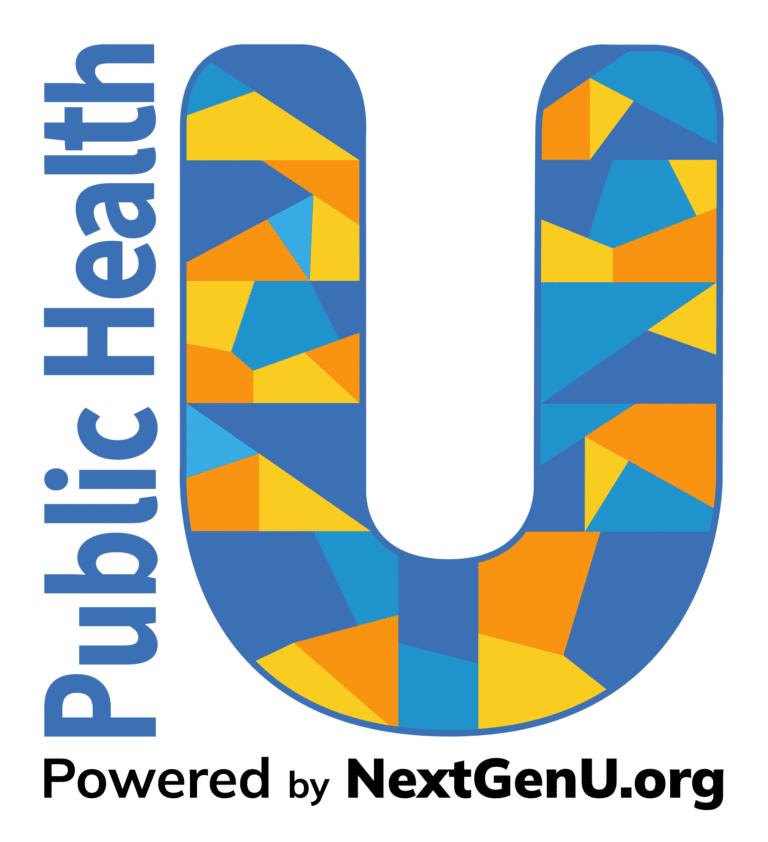Critical thinking is essential in many fields of study, and public health is no exception. As we navigate an increasingly complex world, critically evaluating information, identifying patterns, solving problems, and making informed decisions are now more valuable than ever. This is especially true for public health graduates preparing to tackle global health’s intricate and multifaceted challenges. Public health professionals must grapple with complex health issues influenced by interconnected factors — from socioeconomic conditions and behavioral patterns to environmental influences and genetic predispositions.

Critical Thinking in Public Health U’s Programs
At Public Health U, we are committed to developing graduates who can think critically, act creatively, and work collaboratively to address global health issues. As we incorporate critical thinking across all our programs, including the Master in Public Health, Ph.D. in Global Health, and Master of Education for Health Professionals, we have made strides in embedding it within our curriculum. We firmly believe in the transformational power of critical thinking in shaping the future of public health. More specifically, our ‘Preparing to Study’ (PTS) screening course for our Master of Education for Health Professionals and Master in Public Health strongly emphasizes critical thinking.

Building a Future with Critical Thinking
Research has shown that “individuals who apply critical thinking as they mature acquire knowledge and experiences and examine their beliefs under new evidence” (Papathanasiou et. al., 2014, p. 284). Critical thinking skills enable professionals to solve this complex puzzle and devise effective strategies and interventions. By integrating critical thinking into our curriculum, we are equipping our students with the tools they need to make significant contributions to their field and improve the health of communities around the world.
At Public Health U, we have begun integrating problem-based learning (PBL) into our online learning environment to cultivate critical thinking, problem-solving, and decision-making skills essential for public health practice. According to Kaur and Mahajan (2023, p. 57), PBL “is an innovative teaching methodology that provides students with real-life scenarios to motivate them to seek out a deeper understanding of the given topic.” As we move towards incorporating microlearning strategies, we aim to further enhance this approach and achieve even more effective learning outcomes.
In addition, we are working to incorporate case scenarios into our online modality. Case scenarios reflect real-life public health challenges and promote active learning by helping students apply theoretical knowledge to practical situations, such as outbreak investigations or risk communication (Kaur and Mahajan, 2023). This approach will enable students to connect course concepts with the complexities of public health practice, reinforcing their learning and preparing them to handle real-world uncertainties. As we continue implementing these methods and exploring microlearning strategies, we aim to create a dynamic and impactful educational experience. By engaging with these scenarios, students will develop the skills to analyze data, synthesize information, and make informed decisions, enhancing their readiness for professional roles.

Conclusion
While our programs have made strides in embedding critical thinking into the curriculum through these methodologies, there is still room for growth. We aim to integrate more diverse and complex real-world scenarios that challenge students to apply critical thinking in unpredictable public health situations. At Public Health U, we understand that the evolving field of public health requires professionals who can navigate complexity, challenge traditional perspectives, and drive transformative change. We are committed to building a future where every public health graduate is equipped with strong critical thinking skills, ready to lead the way toward a healthier future for all.
Reference List
Kaur, M., & Mahajan, R. (2023). Inculcating critical thinking skills in medical students: Ways and Means. International Journal of Applied & Basic Medical Research, 13(2), 57-58. https://doi.org/10.4103/ijabmr.ijabmr_214_23
Papathanasiou, I. V., Kleisiaris, C. F., Fradelos, E. C., Kakou, K., & Kourkouta, L. (2014 ). Critical thinking: The development of an essential skill for nursing students. Journal of Academy of Medical Sciences of Bosnia & Herzegovina, 22(4), 283-286. https://doi.org/10.5455/aim.2014.22.283-286
Reisha Narine
Author
